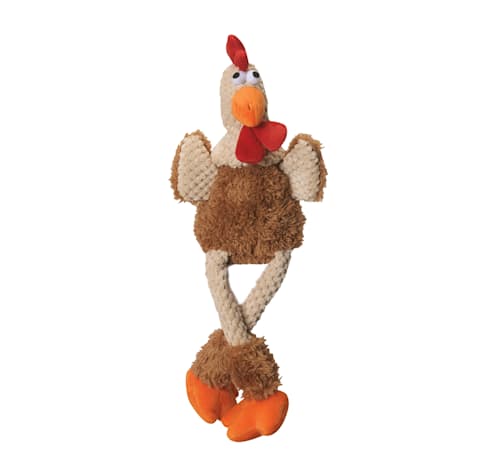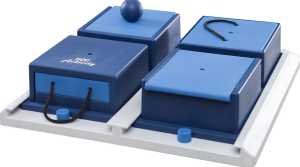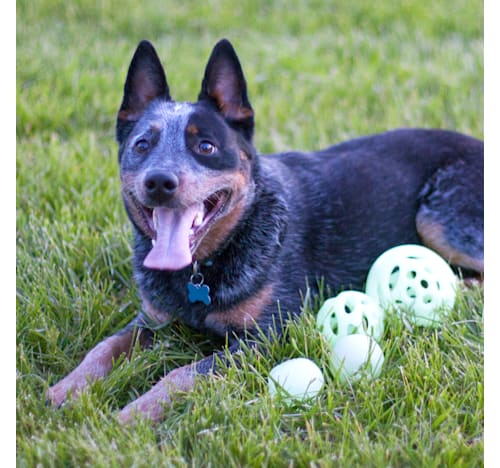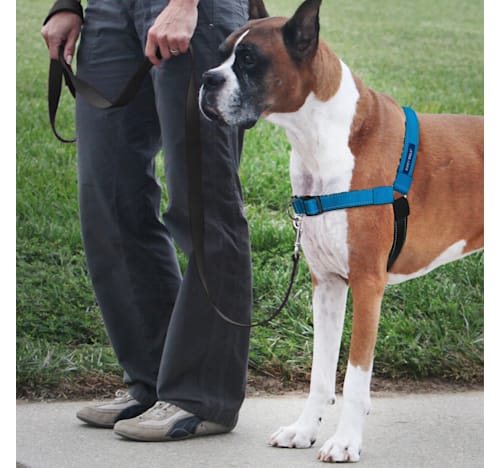You may not often think about your dog's "mood," but a canine's mental state is an important part of his well-being.
In a similar fashion to people, emotional stress can adversely affect a dog's mental health. While dogs have a reputation as happy-go-lucky, carefree creatures, the fact is that canines can suffer depression as readily as humans.
"There is little reason to think that dogs cannot experience states that are extremely similar to human depression. Dogs actually are so close psychologically to people that many findings with dogs have ultimately been applied to people, and vice versa," says Mikkel Becker, CBCC-KA, Lead Animal Trainer for FearFreePets.com, as well as co-author of From Fearful to Fear Free.
It's up to you to recognize your dog's depression symptoms and, if needed, take steps to ease your dog's anxiety. Here's how to help.
Spot Dog Depression
Boredom is one way dog health can be affected by depression. If they have limited activity and few outlets for natural behaviors, they become frustrated. "Dogs can become seemingly lackadaisical," notes Becker. "Aside from lethargy, they tend to exhibit loss of interest in walking or playing, decreased appetite, and increased time spent lying down or sleeping," adds Wailani Sung, DVM, DACVB at the San Francisco SPCA, and Becker's co-author.
Also, fear can immobilize animals. "Some dogs shut down and slow down when distressed rather than reacting outward as other dogs may do," explains Becker. "But just because they're stoic, doesn't mean that they're any better off. Instead, they may actually be worse off." One study compared the stress responses of young dogs to older dogs. Younger dogs were more likely to act out, while older dogs were more apt to suffer in silence. However, those "silent sufferers" actually had higher levels of stress hormones in their body and were less able to cope with the distressing situation.
It's important to note that any changes in your dog's physical activity or emotional state warrant a call to your veterinarian, stresses Becker. "Medical issues most often present themselves first as behavioral changes. Metabolic issues, pain, or disease are just some of the reasons that dogs might act differently," she explains.
Improve Your Dog's Mental Health
The good news is, there are relatively simple things you can do to help improve your fur baby's mental health. Becker points to five key steps towards keeping dog anxiety at bay:
1. Keep things interesting.
Provide activities that are engaging for your pupper's body, brain, and spirit. For example, rotate toys in and out of his toy box to keep playtime from becoming same old. The goDog Checkers the Rooster squeaks and has a chew-guard liner, so it's destined to become his new favorite of the week.
2. Try food puzzles.
Becker uses food puzzle dog toys to feed her own dogs rather than bowls. Dogs in the wild are scavengers, and searching for their meals lines up with their natural behavior much more closely than mindlessly munching from a bowl does. The Trixie Activity Poker Box has four compartments to hide treats your dog has to use his ingenuity to get. A similar option is the Busy Buddy Magic Mushroom, which dispenses kibble as it spins and rolls.
3. Look to rewards.
Reward-based training gives a dog a semblance of choice and control, teaching him that he has the ability to positively impact what happens to him. Think about it: Don't we all feel better emotionally when we know that what we do matters? Start with easy tricks like "shake" or "high-five," then lavish him with praise and a few treats. Plato Thinkers Natural Duck Smart Treats are made with DHA, an ingredient known to support brain function.
4. Just play.
"Find it" is a fun, stimulating game for your dog, and it couldn't be easier. Simply hide one of his favorite dog toys and encourage him to find it. (Don't hide it too well, though, at least not at first. The idea is to encourage, not discourage.) Chew King Glow Balls are perfect for hiding. They're light, small, and they glow in the dark!
5. Take time to stop and smell the roses.
And the grass, and the fire hydrant, and the bush...Dogs experience the world primarily through their nose. Your dog is using his mental energy as he "reads" the "pee-mail" that other dogs have left behind. So make his daily walks leisurely rather than a race to cover a certain distance. A harness that gently dissuades a dog from pulling, like the Petsafe Deluxe Easy Walk Harness, can help keep walks at a relaxing pace. Following a daily routine for walks as much as possible can be really helpful too.
6. Ask your Vet about Supplements
Supplements may be able to help a dog's depression in some cases. Two products that may be useful in relieving dog depression symptoms are Zylkene and Composure.
Dr. Sung sometimes recommends Adaptil, a dog pleasing pheromone. "Most of all, talk to your veterinarian for guidance as to what supplements or medications could be added into an overall program that will help to address the issues at hand—and to ensure your dog isn't being impacted by underlying health issues," urges Becker. Parents of senior dogs may want to ask their vet about Neutrick's Cognitive Support, soft chews specifically formulated for older dogs.
No matter what you choose to help your pup, recognizing your dog's mental health issues is the first step to a healthy and happy companion.
How do you keep your dog happy? Tell us on the Wide Open Pets Facebook page!
Editor's Note: Products featured on Wide Open Pets are independently selected by our editors. However, when you buy something through our links, we may earn a commission.










